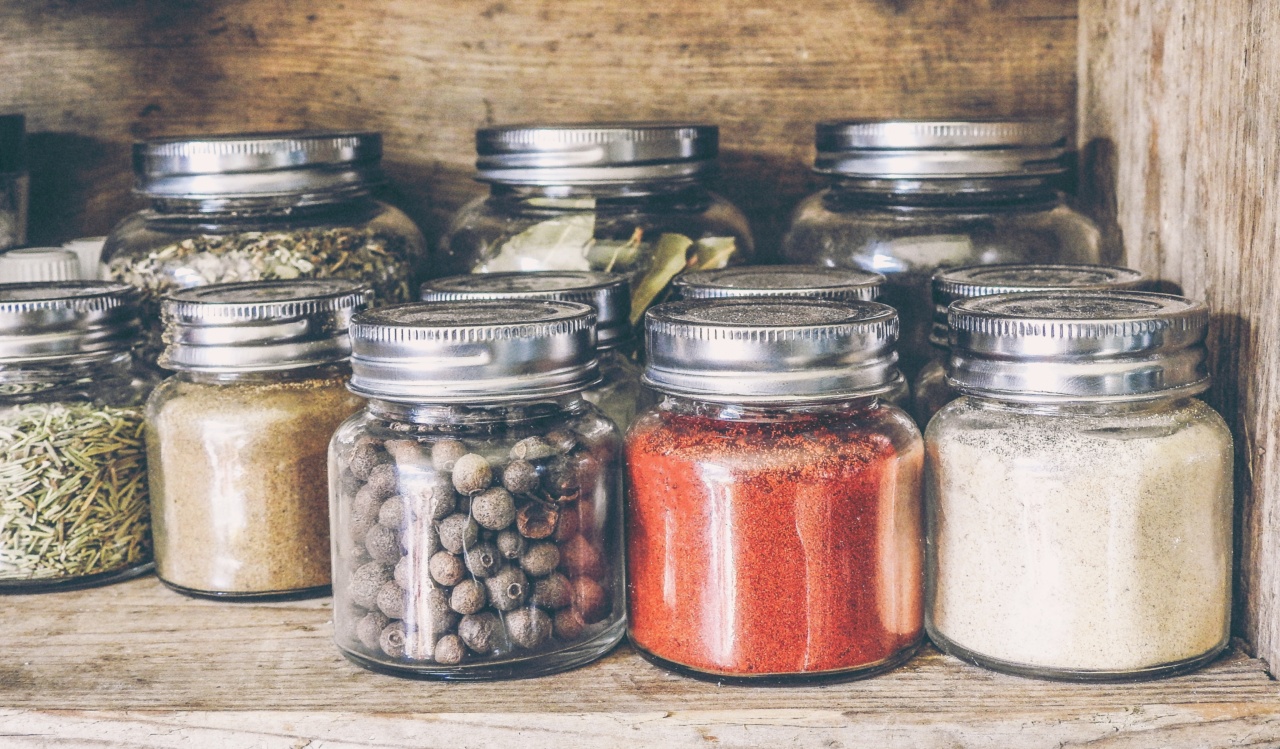Cancer is a chronic disease that affects millions of people around the world. With cancer rates on the rise, it’s important to understand how our diet can help prevent the disease from occurring or reoccurring.
To reduce the risk of cancer, it’s essential to maintain a healthy, balanced diet full of nutrient-rich foods that contain antioxidants, vitamins, and minerals. Here are ten cancer-fighting staples for your pantry that can help support a healthy diet and reduce the risk of cancer:.
1. Leafy Greens
Leafy green vegetables like spinach and kale are rich in antioxidants and vitamins that can protect our cells from damage caused by free radicals. Free radicals are unstable molecules that can damage DNA, leading to cancer development.
Leafy greens are also high in fiber, which can help maintain a healthy digestive system, and have anti-inflammatory properties that help reduce chronic inflammation, a risk factor for certain cancers.
2. Berries
Berries like blueberries, strawberries, raspberries, and blackberries are a great source of antioxidants that can help prevent cell damage caused by free radicals.
Berries are also high in vitamins and minerals, including vitamin C, folate, and potassium, which support healthy immune function and a strong, healthy body.
3. Cruciferous Vegetables
Cruciferous vegetables like broccoli, cauliflower, and brussels sprouts are rich in vitamins A and C, fiber, and many other nutrients that have been shown to reduce the risk of cancer.
Studies have shown that the compounds found in cruciferous vegetables can help reduce chronic inflammation, lower oxidative stress, and even kill cancer cells.
4. Garlic
Garlic is rich in sulfur compounds that have been shown to have anti-cancer properties. These compounds can help prevent the formation of cancer cells and even kill cancer cells in the body.
Garlic has also been shown to have anti-inflammatory properties that reduce the risk of chronic inflammation, a key contributor to the development of cancer.
5. Turmeric
Turmeric is a spice that contains a powerful antioxidant called curcumin. Curcumin has been shown to have anti-inflammatory properties and has been found to help prevent the growth and spread of cancer cells.
Turmeric can be added to many dishes, including curry, soups, and stews, to add flavor and provide health benefits.
6. Whole Grains
Whole grains like brown rice, quinoa, and whole wheat pasta are high in fiber, vitamins, and minerals that support a healthy immune system and help reduce the risk of cancer.
Fiber in whole grains has been shown to help maintain a healthy digestive system by promoting regular bowel movements and reducing the risk of colorectal cancer.
7. Nuts and Seeds
Nuts and seeds like almonds, walnuts, chia seeds, and flaxseeds are a great source of healthy fats, fiber, and many essential vitamins and minerals that help support a healthy immune system and reduce the risk of cancer.
The healthy fats found in nuts and seeds have been shown to reduce inflammation and help prevent the growth and spread of cancer cells.
8. Beans and Legumes
Beans and legumes like lentils, chickpeas, and black beans are high in fiber, protein, and many essential vitamins and minerals that help support a healthy immune system and reduce the risk of cancer.
The fiber found in beans and legumes has been shown to help maintain a healthy digestive system and reduce the risk of colorectal cancer.
9. Tomatoes
Tomatoes are a great source of lycopene, a powerful antioxidant that can help prevent damage to our cells and reduce the risk of cancer.
Studies have shown that lycopene can help reduce the risk of prostate cancer and may even help treat certain types of cancer.
10. Green Tea
Green tea is a delicious and healthy beverage that contains antioxidants and other compounds that have been shown to have anti-cancer properties.
Green tea has been found to help prevent the growth of cancer cells and may even help reduce the risk of certain types of cancer.
Final Thoughts
Incorporating these ten cancer-fighting staples into your pantry can help support a healthy diet and reduce the risk of cancer.
Remember to always eat a balanced diet that includes a variety of nutrient-rich foods, exercise regularly, and talk to your doctor about any health concerns you may have.




























